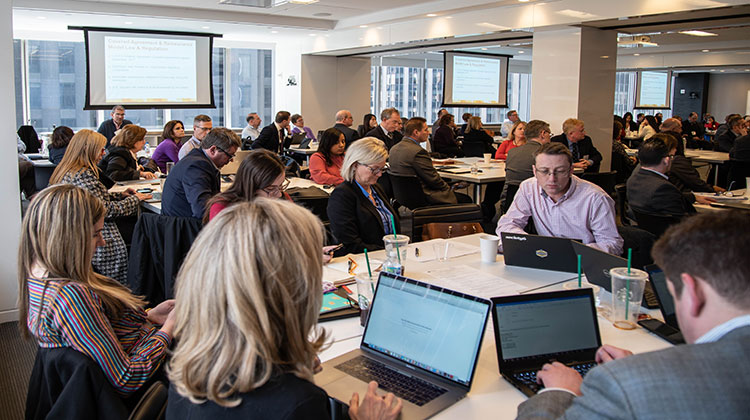Regan Shulman (Vice-President and Deputy General Counsel of Arch Insurance Company) and Michele Jacobson and Robert Lewin (both Partners at Stroock) discussed the historical issues that insurance companies have faced in relationships with program managers and offered practical solutions on how to manage those relationships productively.
The panel began by reminding attendees of historical scandals involving MGAs and MGUs, including Unicover, and referenced the Dingell Report, which recommended additional regulation of the relationship between insurance companies and MGAs/MGUs. Next, the panel discussed the pros and cons of relationships with program managers. Among other benefits, the panel noted that use of a program manager provides enhanced premium volume and distribution channels, as well as access to niche markets that might otherwise be unavailable to the insurer. One of the principal potential detriments to an agency relationship is the fact that the MGA/MGU may have no skin in the game and is normally incentivized to generate premium.
Ms. Shulman suggested that this issue could be addressed by tying the program manager’s compensation to experience and by agreeing to initial premium caps that could subsequently be adjusted. The panel discussed other possible detriments, including the potential that the program manager could commingle funds from multiple programs, that the insurance company may not have adequate access to records relating to the program, that the program manager might fail to promptly pay claims, and that, in the event of a dispute between the program manager and the insurance company, the flow of information would cease, jeopardizing reinsurance relationships.
The panel then discussed how to set up program business to avoid these lurking pitfalls. In light of previous scandals involving program managers, the panel stressed the need to perform due diligence and proper vetting of the proposed program manager before entering into the relationship. In addition, New York Insurance Department Regulation 120 and the NAIC Model Managing General Agents Act provide guidance on written agreements with program managers, including the need for a written agreement that clearly sets forth financial and reporting responsibilities and makes clear that the program manager holds all funds in a fiduciary capacity. The written agreement should specify applicable underwriting controls, such as premium caps and renewal criteria, and appropriate claims controls, including conditions under which the insurer should receive copies of the claim file and limitations on the program manager’s authority. Further, the parties should clearly outline the responsibilities, if any, assigned to the program manager in connection with the reinsurance for the program. Lastly, the written agreement should contain provisions pertinent to the relationship between the insurer and the program manager, including termination and suspension provisions, as well as dispute resolution procedures.
Finally, the panel emphasized the need for the insurer to oversee the program manager in a “hands-on” manner, suggesting the appointment of an inhouse person to monitor compliance with reporting and payment terms and to maintain near-constant communication with the program manager.
Refer to page 23 in the Spring 2018 issue for the article. https://www.airroc.org/assets/docs/matters/AIRROC_Matters_Spring_2018_Vol_14_No_1.pdf
